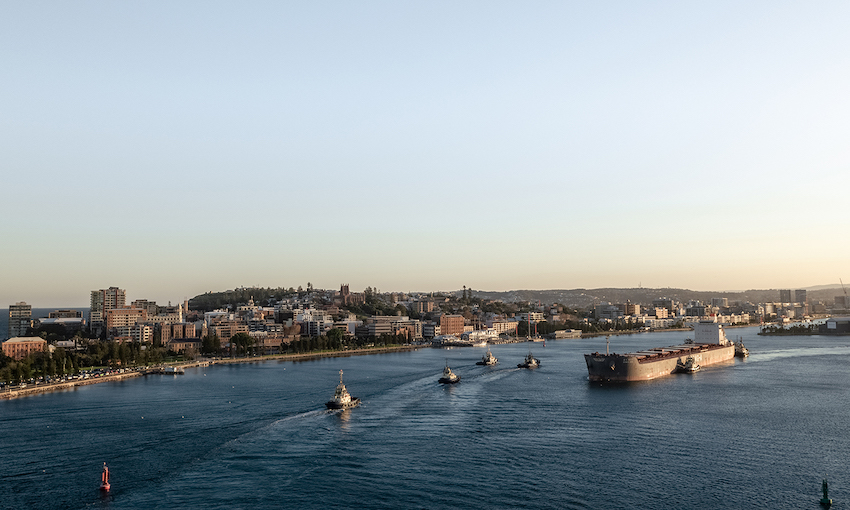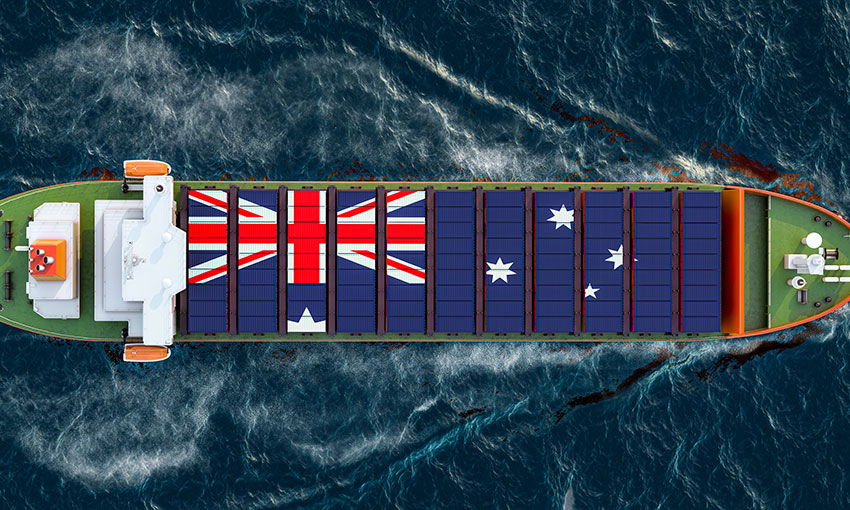IN a recent article published in the DCN, I mentioned that container shipping lines collectively are set to make more than US$100 billion this year, with Maersk alone forecasting a profit of more than US$14 billion. Recently, Maersk has revised this figure to US$22 billion, its biggest profit in history.
What should shipping lines do with all that money?
Their first task is likely to pay dividends to their long-suffering shareholders and potentially instigate share buybacks. Secondly, it is probably wise to invest in new vessels and new equipment. However, there are more and more voices being heard that suggest that shipping lines (not only container shipping lines but all ship owners) should invest in more research and development in new technology to decarbonise the industry.
Shipping currently contributes around 3% of global greenhouse gas (GHG) emissions, but if nothing is done, this could rise to 17% by 2050 as further globalisation occurs and the world’s GDP grows. In 2018 after several years of negotiations, the International Maritime Organization’s Marine Environment Protection Committee (MEPC) reached agreement to reduce GHG emissions of ships by 50% by 2050, from the 2008 baseline figure. This is not enough according to some environmental groups.
One of the environmental activist groups Ocean Rebellion has held regular protests at the IMO headquarters in London. Their demands are simple: “Stop fake laws and move on plans to get ships off fossil fuels fast, to prevent repeated negligent fossil fuel spills, protect people’s livelihoods, protect precious marine environments, and to protect our climate from fossil-fuelled breakdown.”
The IMO argues that shipping companies today have few readily scalable options to replace the carbon-heavy fuel that drives most ships.
A lot of noise has been made about shipowners building new ships which run on LNG; however, whilst cleaner than heavy fuel, it is still a fossil fuel. Several shipowners have recognised that the IMO target is not enough and have committed to net-zero carbon emissions by 2050.
Mediterranean Shipping Company, which is a private company and does not disclose its profits, has publicly announced its commitment to reach net-zero carbon emissions by 2050. Maersk, the largest container shipping company in the world, has also committed to reach net-zero emissions by 2050. Given that ships have a lifespan of several decades, to reach this target will require new zero-carbon emitting ships to come online in the not-too-distant future.
Maersk has placed an order for eight containerships that will run on liquid fuel. Their engines will run on e-methanol sourced from a Danish company producing purportedly carbon-neutral fuel that is made by producing hydrogen through electrolysis, using electricity from a solar farm, then combining that with carbon dioxide recycled from biogas plants. Building those ships will be 10% to 15% more expensive, but Maersk hopes that having zero-emissions ships will entice major shippers to use their services in their quest to reduce their environmental footprint. Other shipping lines are also investigating in zero-emission ship technologies, but some of these technologies are still being developed and need to be scaled up to be viable for ships that travel the globe.
World leaders will be gathering for COP26 in Glasgow in November and the next IMO MEPC meeting will also be held in November. Shipping lines will no doubt come in for criticism, but governments also need to agree on a global carbon tax to make the cost of ‘green’ fuels competitive with heavy fuel so shipping lines and shipowners can invest in alternative fuel supplies to power their vessels.
Peter van Duyn,
Maritime Logistics Expert,
Centre for Supply Chain and Logistics, Deakin University





